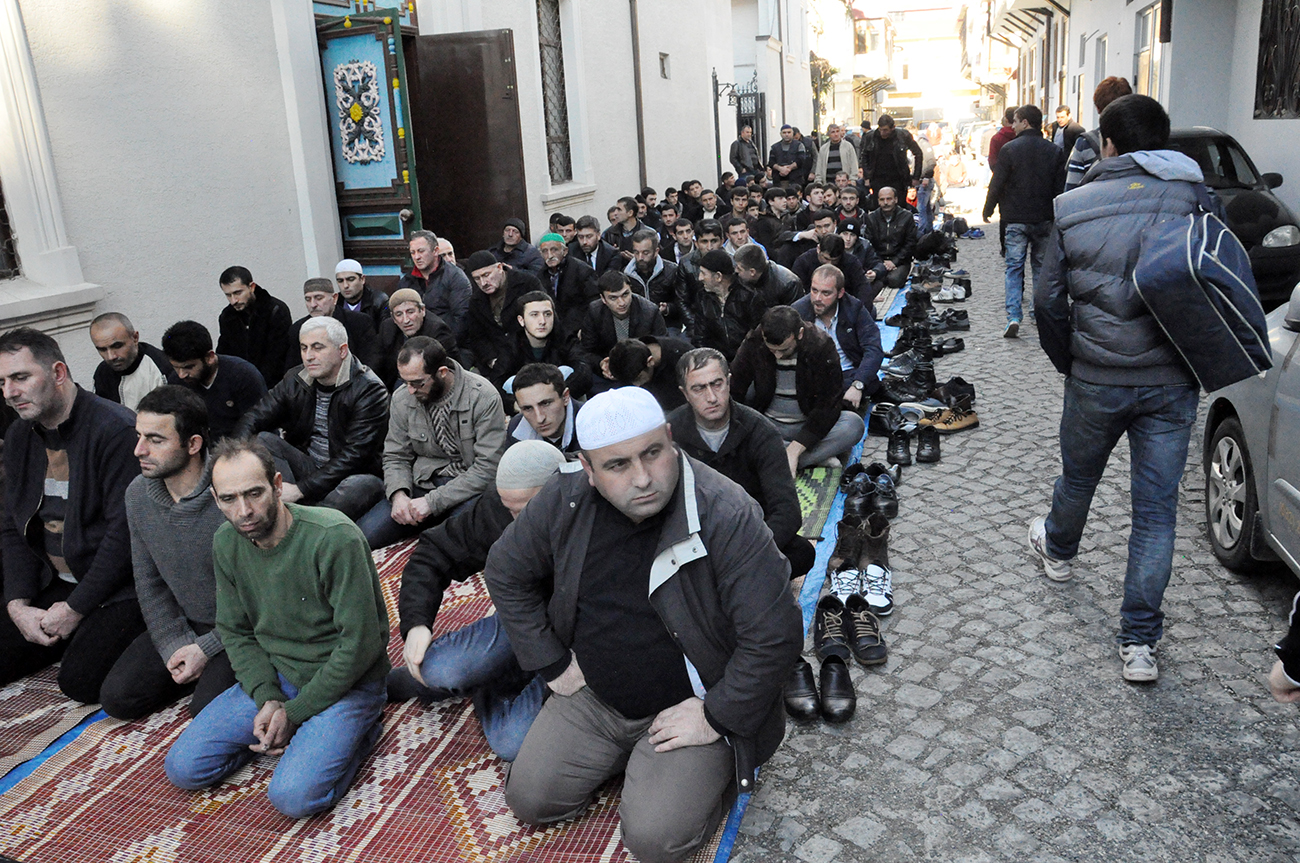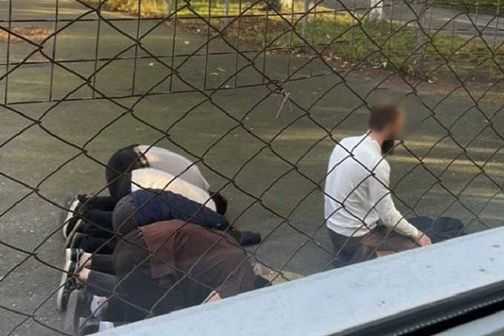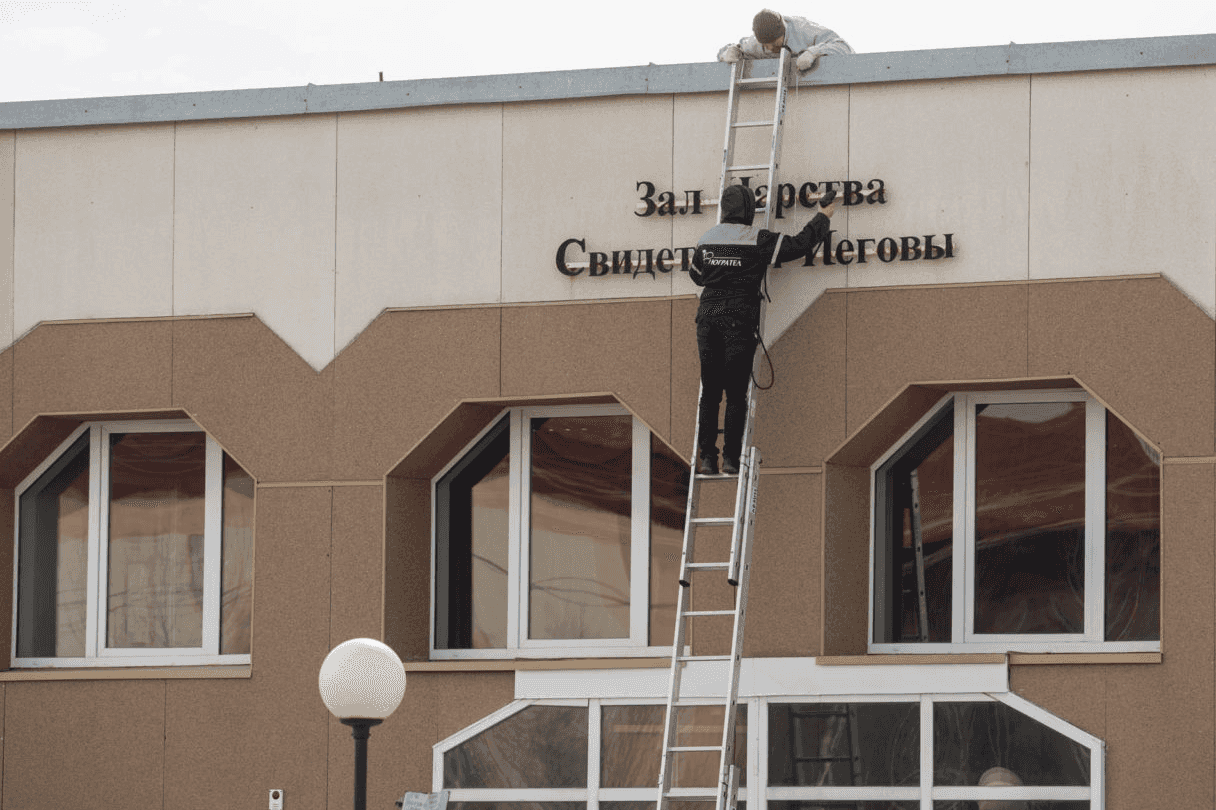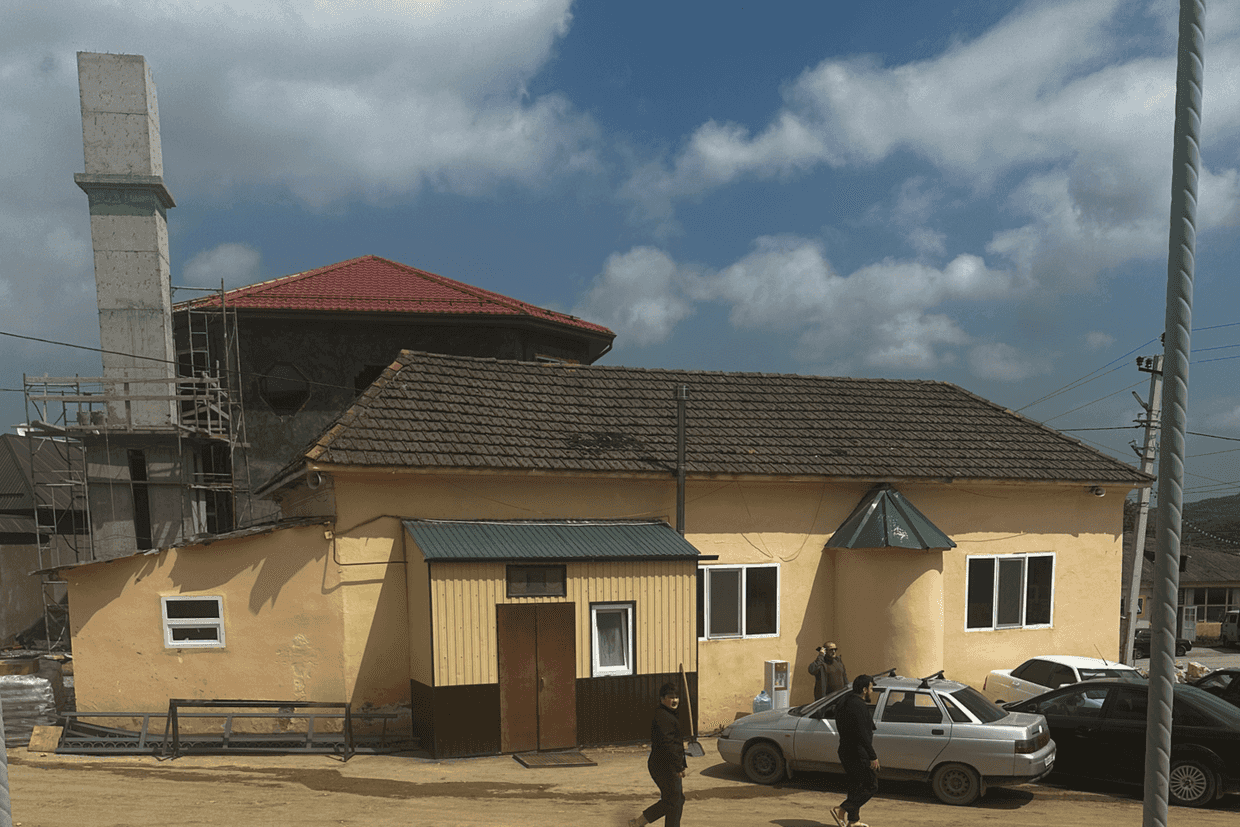

Batumi City Court has ruled that the city authorities’ refusal to grant a permit for the local Muslim community to construct a second mosque in the city was discriminatory.
The Mosque Construction Fund, a local initiative group set up to raise funds for the mosque, first addressed the court in June 2017, after their application for a construction permit was rejected.
For over two decades, Muslims in Batumi, the capital of the Autonomous Republic of Adjara, have demanded that land be allocated to construct a second mosque in the city.
They say the only mosque currently operating in the city, the Orta Mosque, is too small to accommodate the local Muslim population, and that every week during Friday prayers, worshippers are forced to stand outside.
Despite repeated promises from the local and central governments, the problem had remained unresolved.
On 30 September, the court upheld two out of three of the Mosque Fund’s claims. Besides ruling that the authorities had been discriminatory, the court overturned legal acts based on which the applicants were denied the building permit.
However, the court did not satisfy their demand to oblige the Mayor’s Office to issue permission for construction.
‘It is the discretionary authority of Batumi Municipality’, said the judge.
Georgian rights group the Human Rights Education and Monitoring Centre (EMC) said that had the court satisfied this demand as well, it would have ensured the timely and efficient enforcement of the court ruling.
The Batumi Mayor’s Office argued in court that the plot of land that the Mosque Fund purchased to construct the mosque was located in a high-density residential zone, and therefore not suitable for a religious building. There are several churches already in the area.
The appeal, which was filed by EMC and the Tolerance and Diversity Institute (TDI), another rights group, on behalf of the local Muslim community claimed that Muslims were being discriminated against on religious grounds.
TDI noted on Monday that the court’s ruling was based on the fact that there were seven Orthodox Christian Churches in the proposed area, several of them on land owned by the municipality.
‘The judge held that the Mayor’s attitudes towards the two religious groups are unequal’, said TDI’s statement.
Prior to the ruling, there were several failed attempts at negotiation between the city authorities and the local Muslim community. The Mayor’s Office had suggested that the land be transferred to the state-sponsored Administration of All Muslims of Georgia.
The Mayor also demanded the group withdraw their appeal from court, after which he said the permit would be issued.
However, the initiative group disagreed, claiming that distrust in the community towards the Administration of All Muslims of Georgia was a result of a state policy that ‘uses the organisation as a tool’.
Muslim rights in Georgia
The case in Batumi is one of several recent attempts by Muslim communities in Georgia to seek justice against perceived discrimination.
According to the Public Defender’s 2018 report, one of the main challenges Georgia faces is poor investigation into religious hate crimes.
‘The investigation into alleged persecution based on religion […] between 2012–2014 still continues without any results in certain cases, while in other cases investigation has stopped’, their 2018 report said.
[Read about another court case involving Adjara’s Muslims: Georgian court orders authorities to provide water connection for Kobuleti Muslim school]
In one case, three Muslims were injured in a brawl in the village of Adigeni in southern Georgia in February 2016. The conflict arose after the local Muslim population appealed to the municipality to allocate land for a separate cemetery.
An investigation into the case was launched for petty hooliganism but was closed without identifying the case as an example of discrimination.
In another case, Vagif Akperov, the former Sheikh of the Georgian Muslims’ Union, claimed he was blackmailed into resigning in December 2013.
Akperov said he was summoned to the Ministry of Internal Affairs where he was forced to write a letter of resignation under threat of having information about his private life released.
An investigation by the Prosecutor’s Office into the allegations is ongoing.
In 2013, a newly built minaret on the Chela Mosque in Adigeni district was taken down on the orders of the Revenue Service, with the help of police. Police beat and arrested 21 people.
Many in the local Muslim community said it was the local Orthodox Church authorities who had gathered signatures asking for the minaret to be taken down.
One of the organisers of the demonstrations against the minaret was Giorgi Kopadze, who had previously worked for the local church. In 2016, he was nominated as the majoritarian candidate for the area by the Georgian Dream Party. Kopadze is now an MP.
Later in 2013, the Chela minaret was returned but damaged.
In October 2014, police arrested 14 Muslims for hindering the demolition of a disputed building in Mokhe in the same area.
[Read more about Mokhe on OC Media: Video — The story of Mokhe told in the snow]
In 2014, the State Agency of Religious Issues created a special commission in Mokhe to study the origins of a building disputed between Christians and Muslims. The commission did not include three people who had been put forward by the local population.
After two years of work, the commission decided not to grant ownership of the ruins to either side. Instead, it declared them a cultural heritage site, named ‘Disputed Building’.
[Read more about unresolved religious conflicts in Georgia on OC Media: Ombudsman: Religious conflicts still unresolved in Georgia]









